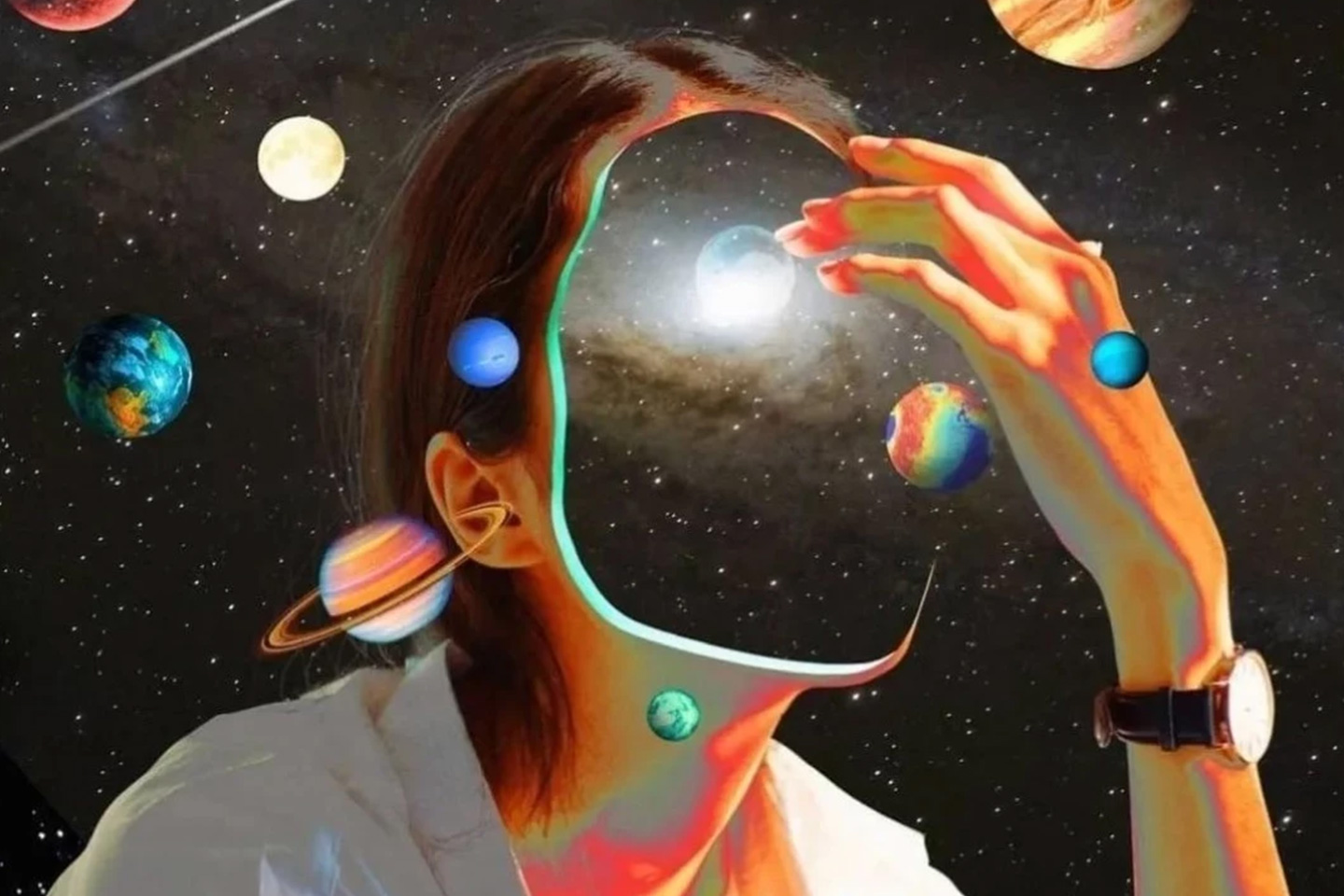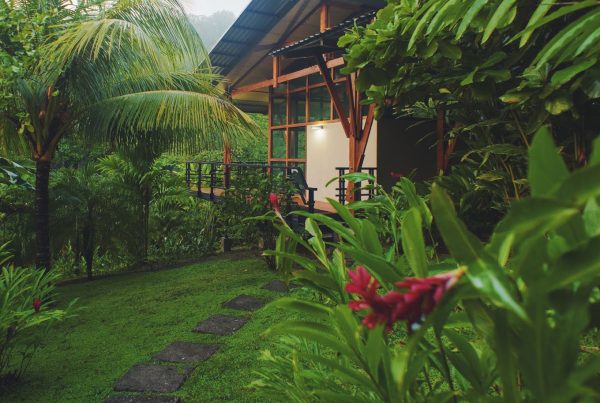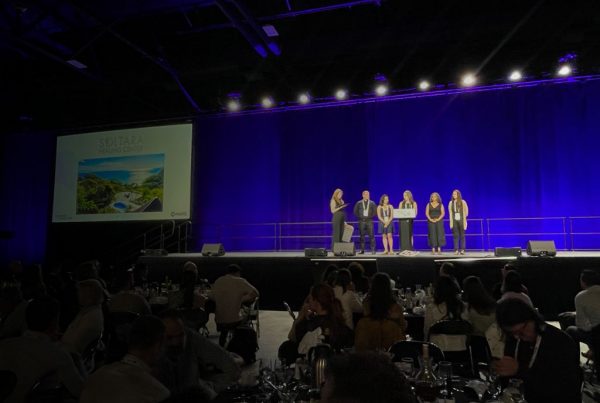A psychedelic-assisted medicine guide shares her take through an intersectionality-curious lens
How do we create safe and inclusive spaces for historically underrepresented groups to drop into their healing process, whether or not that includes psychedelics? For those who have watched the recently released docu-series ‘How to Change Your Mind,’ one of the key takeaways is this idea that we’re still working through which kinds of containers are most conducive for psychedelic-assisted therapy sessions (and really, beyond). This can apply to any of the therapeutic medicines in current conversation, including ayahuasca, LSD, psilocybin, MDMA and mescaline. All that being said, in the absence of any one definitive answer, we are sitting at the precipice of what we know and don’t know – with more questions than answers to arrive at a shared framework for holding safe healing spaces. What this looks like for women of color is yet a deeper, more complex and underdeveloped thread, and one we’re here to explore, at least initially today in the wake of post-Roe vs. Wade.
In the spirit of getting to more clarity, we recently sat down with Jessika Lagarde, the co-founder of WOOP or Women on Psychedelics. She’s also a Brazilian psychedelic-assisted medicine guide and freelance writer in the psychedelic space. Since 2020, she’s been behind WOOP’s content production, where her passions for storytelling, women’s empowerment, and psychoactive substances converge. Women On Psychedelics exists to bring awareness about the benefits and risks of psychedelic-use for women and encourage all of us to make well-informed choices about their therapeutic potential and transformational capacities. Her goal as an advocate for psychedelics, which she shares more about in our conversation, is to work towards the normalization of these substances and the end of the stigmatization of women’s mental health and women’s drug use.
“The movement is not inclusive at all. There are so many barriers for BIPOC to speak up and bring their voices into the space. As a Latina woman, it’s difficult to speak up about my work. I continue to receive backlash about why we need to have this conversation…it gets under people’s skin.”
We couldn’t think of a more relevant guest to bring on to help us navigate this crucial territory. Understanding what’s at stake if we don’t illuminate our lack of diversity in the psychedelic healing space is becoming just as critical as spotlighting the elements of a safe female-led healing space. Thanks to Jess’s firsthand experiences as a practitioner, guide and activist, we can begin the hard but important work of creating those spaces we want to fully experience ourselves. Writing them into existence is that first critical step!
Let’s start with the basics of body ownership
A conversation about safe spaces (in psychedelics and beyond) begets a look at the idea of “body ownership,” where the story of safety truly begins. It’s heartbreaking to be living in precarious times when a woman’s right to make decisions about her own body and feel safe in those decisions has been compromised by the very political institutions designed to protect and uphold the equality of all humans. To better understand this, we turn to “body ownership,” a basic tenet of moral standing for humans. As The Conversation writes:
“You own your body when you have the authority to make decisions about what is done to it and how it is used on the basis of your own interests and desires. Body ownership is a fundamental part of moral standing for humans. It is through my body that I act on the world: when I bake a cake, write a book or build a house, I use my body. It is through my body that the world acts on me. When I am struck by the beauty of a sunrise, enjoy a cool breeze, find myself convinced by an argument, these effects on me need to go through my body. How my body is, makes up a major part of how I am: if my body is hurt, I am hurt. Body ownership is needed to respect the unique relationship between me and my body.”
With this basic definition, we can start to disentangle institutions from an individual body – or a human-made construct from a universal birthright. And most importantly, understand the grave implications of violating body ownership from a trauma-informed standpoint, which is laid bare so eloquently in Mind (a mental health charity in England and Wales, lobbying on behalf of those living with mental health problems):
“Safety was synonymous with a trauma-informed or compassionate approach. Trauma-informed practice is important for all groups, not just those working with survivors. Trauma- informed practice means we are aware of the impact of trauma, on people and their feelings and behavior.”
It brings to mind the age-old ritual of women’s circles which sprang from the traditions of the Red Tent and Moon Lodges, where women could rest and heal together while menstruating. Sadly and unsurprisingly, in the 1400s, female healers and spiritual leaders were discovered and prosecuted, marking the eventual downfall of these safe, women led spaces. So how do we reclaim these during a time of psychedelic resurgence?

What we stand to lose by ignoring the lack of diversity in psychedelic healing spaces
While this isn’t news, it bears repeating. The psychedelic healing movement is incredibly homogeneous and more pointedly, “very white, and very male” as Robin Divine (mental health advocate for Black women) says. “An important element to re-establishing this space is inclusion and diversity. Having these conversations now is essential as we begin building the armatures for psychedelic application.”
While history will likely skew towards repeating itself, in this space of consciousness and healing, it doesn’t have to. We can amplify our shared voices around this, and start to rebuild safety from the ground up. Here are just a few voices in the mix that we can all benefit to internalize, again and again until we move into action:
“Despite having disproportionately higher rates of trauma, people of color and women remain underrepresented in research amongst participants, as well as in underground psychedelic communities and the movement toward decriminalization and legalization.” – Jess Lagarde, Psychedelics Today
“We also must acknowledge that there are shadow sides of this whole movement that have NOT gotten sufficient visibility and that have to be addressed. These include: sexual abuse by ayahuasca shamans and psychedelic-assisted therapists; a lack of attention to equal access to these medicines for historically disenfranchised and marginalized groups, such as people of color and the LGBTQ community; and the lack of recognition for women pioneers whose work has been frequently at the forefront of this research but who have been written out of the historical narrative.” – Bia Labate at a 2019 Bioneers Conference
So, what then do we stand to lose by ignoring this lack of diversity so prevalent in the psychedelic healing world? Following Jess’s observation, it seems we’d lose out on the opportunity for immense collective and intergenerational healing if we actually focused on groups with the most trauma. Also, there’s the high chance we’d miss out on the opportunity to increase safety and advance the movement in healthy ways, such as by reducing stigma to decreasing sexual abuse, improving ethical standards, and advancing science and innovative approaches to name a few.
If we centered these conversations on the diverse lenses of people with different lived experiences, we might have a shot at operationalizing inclusivity and changing this landscape altogether.

Reimagining women’s safety and spaces
So where do we go from here? We can talk about the lack of diversity (in ethnicity, gender, sexuality, etc.) while we simultaneously begin to create the safe psychedelic spaces we want to see. The good news is, we may be further along than we think thanks to the wonderful work of WOOP, Soltara’s very own inclusive gathering space (The Maloca), and other female-led communities prioritizing the conversation of safety as number one!
Whether you’re a space holder for women’s circles, a virtual platform, organization or psychedelic therapy practice, consider that safety isn’t black or white. It’s the patient, slow and inquisitive process that will rise above the rest:
- Intersectionality-curious – Defined by WomanKind as “the acknowledgement that everyone has their own unique experiences of discrimination and oppression and we must consider everything and anything that can marginalise people – gender, race, class, sexual orientation, physical ability, etc.,” intersectionality becomes a huge sticking point in the conversation around safe and inclusive spaces. For example, the experience of a Latina woman from South America can be worlds apart from an American-born Latina born into a higher socio-economic class, which holds true for any other intersectional profile between two people. To hold the safest possible space, we first have to accept that no two safe spaces will look alike. Because we don’t know what we don’t know, instead of prescribing a one-size-fits-all, we can all begin to ask the right questions based on an intersectionality-curious lens. Questions (much like the ones posed in Mind) can be a supremely helpful step in the right direction, whether you’re in the seat of a facilitator or participant:
- What does it mean to be safe today?
- What do you associate safety with?
- Where have you felt the most safe?
- Who do you feel more safe with?
- Recognition of barriers – Naming our individual and collective barriers in entering a safe space is paramount for us to build deeper understandings of those differences and intersectional backgrounds. Here are a few barriers to initially explore both individually and in groups to bring about greater cross-cultural awareness:
- Socio-economic barriers – Are you in a privileged position to openly talk about your experience working with psychedelics without fear of big things, like losing your job or kids? Or is this a more precarious and dangerous position for you to take?
- Cultural barriers – Do you come from a culture that’s open to the therapeutic models of psychedelics, or is there a religious bent to your culture that would prevent open lines of communication and ultimately, acceptance?
- Legal barriers based on country of origin or residence – It’s nearly impossible to reimagine a future paradigm of psychedelic therapy without cross-checking the political and legal implications for engaging in psychedelics. Are you from a place that has loose or strict legal ramifications?
- Trauma (or nervous system) informed – While the field of trauma-informed therapy is widespread, we can also accept that there are more questions than answers when it comes to defining a safe and inclusive container for women and underrepresented communities. Every individual is unique in their backgrounds, and the containers for both healing and integration should ideally account for everyone’s needs. As we continue to learn, while much can be considered from the outside in, it can only benefit us to also look from the inside out. Trauma-informed therapies are a burgeoning space, and in our next episode of this series, we’ll be speaking with Applied Neurologist, Elisabeth Kristof from Brain-Based Wellness to go a few layers deeper into this important work. For a teaser, you can check out her incredibly valuable workshop on The Maloca, “Creating Healthy Boundaries at the Level of the Nervous System.”














